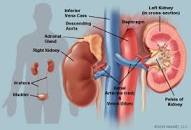
Recently Diagnosed or Relapsed? Stop Looking For a Miracle Cure, and Use Evidence-Based Therapies To Enhance Your Treatment and Prolong Your Remission
Multiple Myeloma an incurable disease, but I have spent the last 25 years in remission using a blend of conventional oncology and evidence-based nutrition, supplementation, and lifestyle therapies from peer-reviewed studies that your oncologist probably hasn't told you about.
Click the orange button to the right to learn more about what you can start doing today.
- You are here:
- Home »
- Blog »
- Multiple Myeloma »
- 10 Year Myeloma Survivor-
10 Year Myeloma Survivor-

“For diagnosis of specific toxicities, please see each specific agent or each organ system overview for details. It is important to remember that often the diagnosis of these toxicities is a diagnosis of exclusion…”
Hi David -I am a 10 year myeloma survivor. I have read lots of articles on health and nutrition and I am a pretty informed patient. I understand most of my blood work and test results. I am currently 52 years old and still work full time.
I have been on lots of therapies and had ASCT in July of 2011. I have been on
- Revlimid,
- Dexamethasone,
- Velcade,
- Daratumumab,
- Ninlaro,
- Pomalyst,
- Carfilzomib
and currently on Belantamab since June 2020.
Belantamab brought my numbers back into check, though my urine proteins have been in the thousands since September. I am having a kidney biopsy Monday Jan 11 to see why the proteins are so high.
You have a course that references detoxification. Can you tell me about the benefits of detox?
I started eating berry smoothies for a week to see if that would help my kidneys, no impact as of yet. I tend to eat a lot of vegetables, though I have not be able to give up the meat.
Anyway, I appreciate any thoughts you might have as a myeloma survivor to another. Thanks, Tom
Hi Tom,
- about stabilizing the average MM patient (95% stage 2-3 according to research)- this makes sense.
- have short term goals- meaning 5-7 years. Again, this makes sense.
- MM Survivor
- MM Cancer Coach
- Director PeopleBeatingCancer
Recommended Reading:
“By using increased doses or dose intensities of cytostatic agents, improvements in clinical outcome may be achieved in some cancer cases. However, high-dose chemotherapy may produce dose-limiting adverse reactions such as
- myelosuppression,
- neurotoxicity,
- cardiotoxicity,
- gastrointestinal toxicity, nausea and vomiting.
The use of bone marrow transplantation, autologous infusion of circulating hematopoietic progenitors and hematopoietic growth factors have been shown to significantly reduce the severity and duration of the pancytopenia associated with cytostatic chemotherapy and chemoradiotherapy.
In addition, recent developments in the control of nausea and vomiting with selective 5-HT3 antagonists have improved the tolerability of chemotherapy. The antiemetic efficacy of these agents has been shown to be equivalent to combination therapy with metoclopramide plus dexamethasone in the prevention of cisplatin-induced emesis.
Progress in the prevention and treatment of organ toxicity is now required, if treatment with higher doses and dose intensities of cytostatic drug treatments are to be used for the future treatment of human malignancies.”
Life threatening toxicities of chemotherapies and immunomodulating medications
“Description of the problem
What every clinician needs to know
Life threatening toxicities of chemotherapies and immunosuppressants can occur with varying frequency depending on the agent suspected and underlying patient risk factors. It is important for clinicians to remember that these medications can be the cause or contributor to many important complications that occur in the ICU…
Diagnosis
For diagnosis of specific toxicities, please see each specific agent or each organ system overview for details. It is important to remember that often the diagnosis of these toxicities is a diagnosis of exclusion after many other common or other life threatening disease processes have been ruled out…

